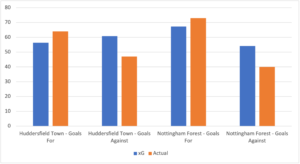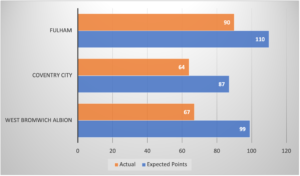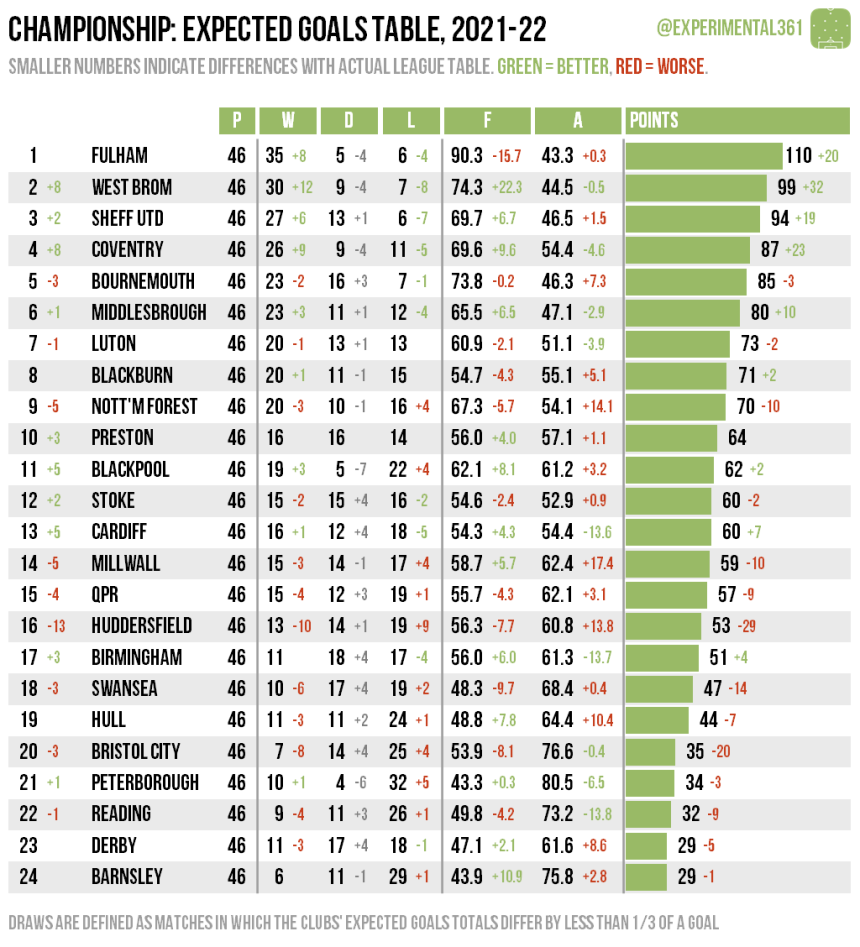How accurate are expected goals?
Expected goals (xG) divides fanbases, but with the Championship drawing to a close, do the statistics match up to how things finished in the league?
Nottingham Forest sealed promotion back to the Premier League following a 1-0 victory at Wembley over Huddersfield Town.
They will be joined in the top-flight by Fulham and Bournemouth, but is that the way things should have ended?
What are expected goals?
xG are the expected number of goals a team should score in a match based on the quality of chances they create.
This is calculated through a variety of factors, such as shots with a preferred foot, range of shot, angle of shot and more.
Each chance is given a rating. For example, an xG of 0.5 is a 50/50 chance to score or miss.
These are then tallied up to show whether a team missed their chances, or were clinical, in comparison with the actual score line.
Experimental 3-6-1 looked at the xG from every game in this season’s Championship to show what the table would look like based on the statistics.
With a draw on xG being incredibly unlikely, Experimental 3-6-1 have taken any results where the teams finished with a difference of less than 0.33 and awarded a draw.
Who beat the statistics?
It is quite fitting that the two teams to perform better than their xG suggest, were the play-off finalists Nottingham Forest and Huddersfield Town.

According to their xG, Huddersfield Town should have finished in 16th, compared to the third-place finish they achieved.
The data shows that they managed to win 10 more games than their expected goals suggest and finished 29 points better off too.
Nottingham Forest would have finished 10 points worse off based on xG, which would have seen them finish outside the play-offs in ninth.
The biggest reason for this is that Forest only conceded 40 goals, even though their expected goals against was 54.
Who missed their chances?
In many ways, it was a season to forget for West Bromwich Albion, who wanted an immediate return to the Premier League but only managed a 10th place finish.
They were the biggest underperformers in the xG table too, finishing 32 points worse off than the data calculated by Experimental 3-6-1.
This was due to a lack of cutting edge, scoring 22 goals fewer than expected. If those chances were taken, they would have finished 2nd.

Another Midlands team that underperformed were Coventry City.
Finishing in 12th, the Sky Blues will look at what could have been, finishing 23 points worse off than their xG suggest.
This meant they did not achieve the 4th place finish they may have done.
Elsewhere, Fulham, who were the Championship’s champions, finished with 20 points fewer than they could have done, despite scoring more than expected.
How accurate are expected goals?
The debate about xG will rumble on, but what does the table say as a general rule?
Only four teams finished in line with their xG, with two of these being top and bottom in the table.
Analysing the xG table, it seems to be more of a guidance to determine whether a team is scoring the chances they create or squandering them.
Similarly, it also shows whether a team is conceding a lot of unnecessary goals or staying tight under pressure.
As with any statistic, managers and coaches will read into it how they like, but the discussion amongst fans will likely remain a topic of debate.
The full xG table by Experimental 3-6-1 can be found below.

Article by Roberto Petrucco